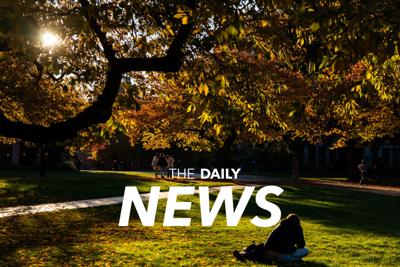A new paper from the Northwest Climate Adaptation Science Center (NW CASC) examines the best ways to manage vegetation after wildfires. As climate change increases the number and intensity of wildfires annually, the flora of fire-affected areas is often changed, going from forests to grasslands or shrubbery.
“The concern is we depend on these landscapes, we depend on forests for timber and for all kinds of other ecological and cultural services,” Meade Krosby, a senior scientist at the UW Climate Impacts Group and one of the study’s authors, said. “So when they change into something else, that has a pretty big impact on human and natural communities.”
The paper came out of an annual Deep Dive from the NW CASC that focuses on emerging ecological risks. It looked at three needs that will help manage vegetation changes: collaborating with Indigenous communities, creating decision-based science, and improving monitoring efforts.
While the United States often focuses on removing all human influence in land management, that approach ignores Indigenous practices that communities have used for generations to improve ecosystems, such as cultural burning.
One of the paper’s main suggestions is collaborating with tribal organizations. Existing examples of collaborations between governments and tribes, such as the Northern Rockies Fire Science Network, show that building relationships across multiple communities helps researchers learn more about effective ecological practices.
Another major identified need is improving access to information for land management agencies and stewards. Those in charge of recovery after wildfires often do not have information about the best and most effective solutions available. Increasing research into vegetation strategies and working with land managers will help ensure that the research is applicable in the field.
“Organizations like the Climate Impacts Group or the Northwest Climate Adaptation Science Center purposefully and meaningfully bring scientists and managers together to collaboratively identify what is the current state of knowledge around a topic and identify research topics,” Mary Ann Rozance, a senior associate with Cascadia Consulting Group and one of the researchers of the paper, said.
The last strategy is increasing monitoring in order to properly identify and respond to the different challenges wildfires pose.
“We want to know where and when these changes are happening so we can intervene if we choose to or we can know what's happening on the landscapes,” Krosby said. “We also want to monitor so that we know what actions are being taken and if they're being effective.”
Monitoring ecosystems will require coordination between different agencies as well as involving local community networks. Looking beyond ecological research, this includes looking at human impacts and educating community members. Creating systems to collect and share data from different projects and organizations also helps to better understand the efficacy of different tools.
In Washington, these vegetation shifts are becoming more common as climate change increases the intensity and frequency of wildfires. However, the report shows that increasing monitoring of landscapes and increasing collaborations with land stewards and Indigenous organizations can help improve the science behind these changes.
Reach reporter Meera Nambiar at news@dailyuw.com. X: @Meera_N1
Like what you’re reading? Support high-quality student journalism by donating here.





(0) comments
Welcome to the discussion.
Log In
Keep it Clean. Please avoid obscene, vulgar, lewd, racist or sexually-oriented language.
PLEASE TURN OFF YOUR CAPS LOCK.
Don't Threaten. Threats of harming another person will not be tolerated.
Be Truthful. Don't knowingly lie about anyone or anything.
Be Nice. No racism, sexism or any sort of -ism that is degrading to another person.
Be Proactive. Use the 'Report' link on each comment to let us know of abusive posts.
Share with Us. We'd love to hear eyewitness accounts, the history behind an article.